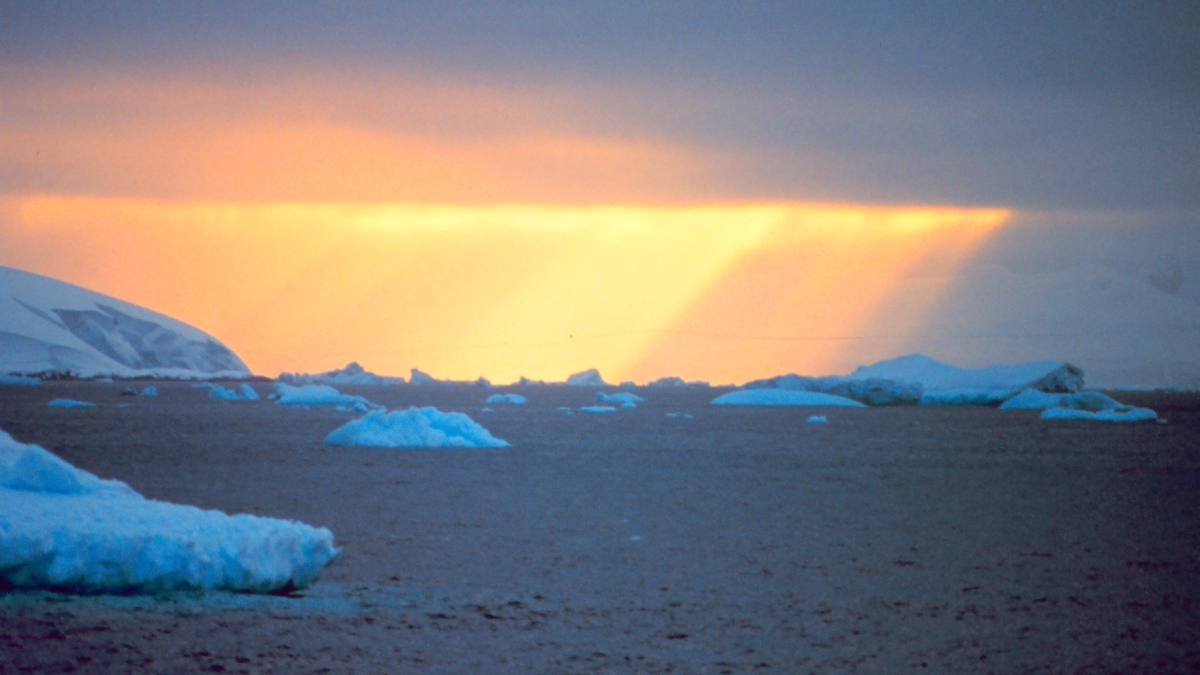ASU’s Global Security Initiative mobilizes to address national security risks of climate change

Photo courtesy: National Oceanic and Atmospheric Administration
The impacts of climate change – increasing global temperature, rising sea levels and storm surges, changing precipitation patterns, and more intense and frequent droughts and floods – create complex security challenges that require new and innovative solutions. In response, the federal government in recent years has focused increased attention on the national security implications of climate change. In a series of reports and major addresses, the White House, Department of Defense, and other federal agencies have identified climate change as a “threat multiplier.”
In a recent report to Congress, National Security Implications of Climate-Related Risks and a Changing Climate, the Department of Defense concluded climate change will increase the risks of environmental degradation, refugee crises, political instability and social conflict.
Fortunately, the US is also taking action to address these risks and build resilience. The Defense Department laid out its plans in the 2014 Climate Change Adaptation Roadmap, which directed the department to integrate climate change concerns into planning, operations, training, and infrastructure.
Today, President Obama directed federal agencies to take action to address the national security implications of climate change by signing a Presidential Memorandum.
To address these challenges, Arizona State University’s Global Security Initiative is building a new program in climate and national security. The GSI program will be a hub for critical research that will enhance resilience and enable adaptation to climate risks globally, supporting US national security interests. Bringing together researchers from a wide range of disciplines - computer science, decision science, engineering, public policy, law, and sustainability - the program will focus on integrated analysis to provide an unprecedented understanding of risks, and to inform and prioritize investments and solutions. The GSI climate and security program will also convene key partners from universities, national laboratories, think tanks and all levels of government to develop a coordinated agenda.
"Climate change is the quintessential wicked problem,” said Dr. Nadya Bliss, director of ASU’s Global Security Initiative and Senior Fellow in the New America’s Resource Security Program. “Together with our partners, GSI is well positioned to provide early warning capabilities to practitioners in context of national and global security implications of climate change.”
Dave White, professor in the School of Community Resources and Development and a Global Security Fellow with GSI, is leading the planning for the new initiative. “This effort will improve our ability not only to anticipate the impacts of climate change but also to develop specific tools and strategies, deploy resources more effectively, build local adaptive capacity, and reduce the risks social conflict.”
GSI’s new climate and national security effort builds upon ASU’s scientific expertise assessing climate impacts on resources such as food, energy, and water. An ASU team led by Global Security Fellows Ross Maciejewski, a professor in School of Computing, Informatics, and Decision Systems Engineering, and Dave White was recently awarded a $3 million grant from the National Science Foundation’s program on “Innovations at the Nexus of Food, Energy, and Water Systems.” This team will develop an integrated modeling, visualization, and decision support infrastructure for comprehensive food-energy-water systems analysis. Such research is necessary to identify potential vulnerabilities and develop robust solutions.
Maciejewski, White, and Bliss have also previously collaborated on groundbreaking research, funded by the Department of Defense, which examined national security implications of climate change. Together with partners including the Pacific Northwest National Laboratory (PNNL) Joint Global Change Research Institute (JGRI), they developed new models, visualizations, and analytic methods to inform national security decision making. For instance, building upon PNNL’s Global Change Assessment Model (GCAM), their research enabled decision makers to anticipate the potential impact of climate change, population growth and other factors on water and energy security in western Africa under different scenarios.
In another ongoing effort at GSI, funded by Skoll Global Threats Foundation, Maciejewski and Shade Shutters (GSI Research Scientist) have been developing methodologies to anticipate effects of trade networks on water, food, and political security in context of climate change. These analyses will indicate which areas of the world are susceptible to emergence of instability based on patterns of trade.
“The risks to our security from climate change can no longer be ignored,” said Sethuraman Panchanathan, executive vice president of Knowledge Enterprise Development and chief research and innovation officer at ASU. “Leveraging ASU’s track record of impact-driven interdisciplinary research and convenorship that bridges the gap between science and practitioners, the new effort will enable proactive intervention approaches increasing global resilience and national security.”
The Global Security Initiative (GSI) is a university-wide interdisciplinary hub for global security research that focuses on openness, inclusiveness and connections to the global defense, development and diplomacy communities.